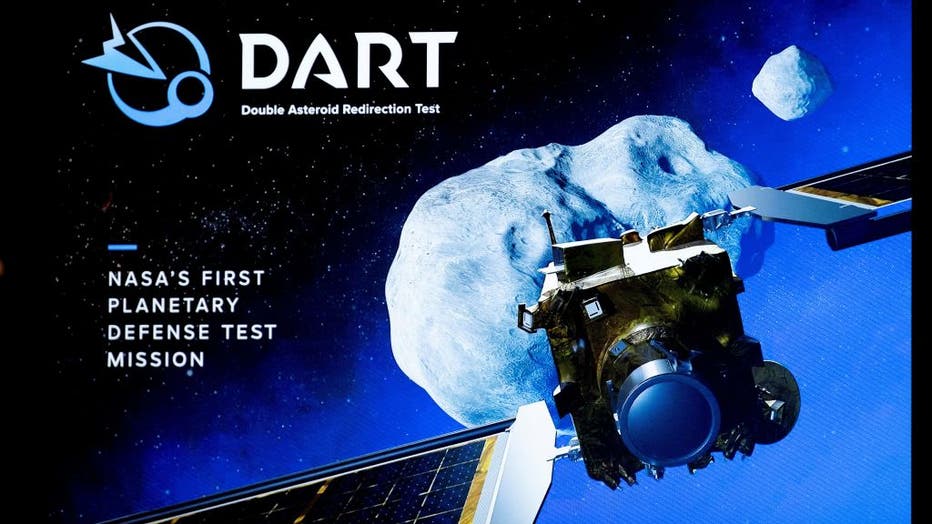Studies confirm NASA can stop asteroids from hitting Earth

Studies confirm NASA can stop asteroids from hitting Earth
There’s a long list of things we all need to worry about in 2023 but apparently, an asteroid hitting Earth isn’t one of them. At least not in most cases. FOX 5’s Josh Rosenthal spoke with a University of Maryland researcher about why.
BETHESDA, Md. (FOX 5 DC) - NASA launched its Double Asteroid Redirection Test, also known as DART, last September — essentially flying a spacecraft into a small asteroid to see if they could divert it.
"All right we hit this asteroid," DART Coordination Lead Dr. Nancy Chabot said at the time. "Now how effective was that at deflecting it and what would that mean for using it?"
And that’s where local astronomers come in.
As previously reported by Maryland Today, University of Maryland researchers were part of a team led by the Johns Hopkins Applied Physics Lab, which played a big part in confirming that DART actually worked. In fact, four different research papers were published just within the last week.

A placard hangs on the wall during the Double Asteroid Redirection Test (DART) Technology Media Workshop Telecon Briefing and tour at the Johns Hopkins Applied Physics Laboratory in Laurel, Maryland, on September 12, 2022, ahead of the September 26 p
"It was a theory that we have now proven to be a working concept," University of Maryland Senior Research Scientist Tony Farnham told FOX 5 Monday evening. "If we have enough lead time, we find the asteroid far enough ahead, we can actually change the orbit and make it miss the earth."
It’s not purely hypothetical either. Just this past January, a truck-sized asteroid passed just above the southern tip of South America, according to NASA. Officials said the asteroid was roughly ten times closer than most communication satellites.

NASA DART mission to redirect potentially dangerous asteroids
NASA Planetary Science Division Deputy Director Eric Ianson joined us with more on the DART mission to redirect potentially dangerous asteroids.
"We can’t correct for hurricanes, we can’t change earthquakes," Farnham explained, "but this is a potentially problematic disaster scenario that we might be able to avoid if we have enough warning time."
READ MORE: Direct impact: NASA's DART spacecraft successfully slams into asteroid
Farnham added that this recent research into DART is merely the beginning and many additional studies are still underway.

